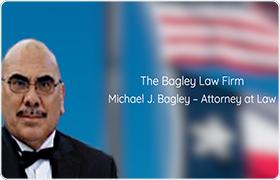El Indio RICO Act Lawyer, Texas
Sponsored Law Firm
-
 x
x

Click For More Info:
-
The Bagley Law Firm
310 Margaret Lane Del Rio, TX 78840» view mapCriminal Defense Law The Justice You Deserve
When you need Legal representation, when you need to fight for the Justice that you know you deserve, you need an Attorney who you know. You need The Bagley Law Firm.
800-952-3840
Not enough matches for El Indio RICO Act lawyer.
Below are all El Indio Criminal lawyers.
Edgar Hugo Juarez
Personal Injury, Family Law, Juvenile Law, Criminal
Status: In Good Standing Licensed: 22 Years
Alberto M. Ramon
Other, International Other, State Appellate Practice, Criminal
Status: In Good Standing Licensed: 51 Years
Gregory Dean Torres
DUI-DWI, Car Accident, Family Law, , Mass Torts
Status: In Good Standing Licensed: 30 Years
Luis De Los Santos
Immigration, Family Law, Criminal, Personal Injury
Status: In Good Standing Licensed: 18 Years
Felipe Hernandez
Family Law, Personal Injury, Criminal, International Other
Status: In Good Standing Licensed: 23 Years
Francisco Martinez
Family Law, Personal Injury, Criminal, Mediation
Status: In Good Standing Licensed: 23 Years
Alberto Rodriguez
Criminal, Litigation, Personal Injury, International Other
Status: In Good Standing Licensed: 16 Years
 Michael J. Bagley Del Rio, TX
Michael J. Bagley Del Rio, TX Practice AreasExpertise
Practice AreasExpertise